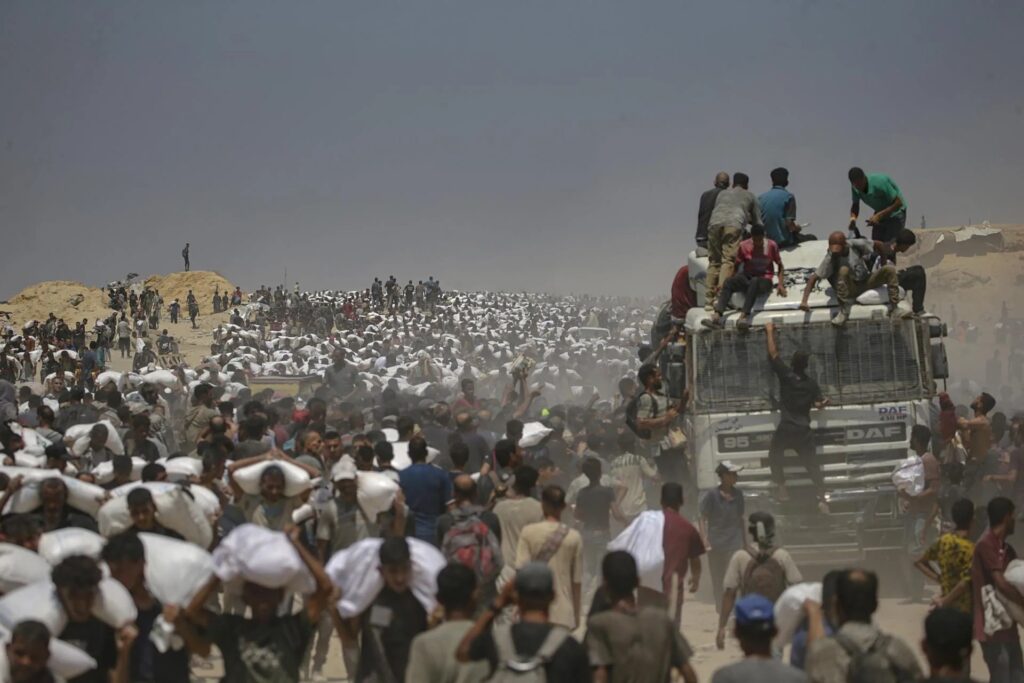UN Reports Epic Humanitarian Crisis in Gaza Amidst Questionable Aid and Israeli Denials
The United Nations exposes a devastating humanitarian crisis in Gaza, with over a third of its population going days without food amid stalled aid efforts and Israeli government denial.

The United Nations has issued a stark warning: Palestinians in Gaza are enduring a “humanitarian catastrophe of epic proportions,” with starvation looming for millions trapped in the conflict zone. This is not mere rhetoric but an unfolding reality witnessed by UN agencies on the ground.
Over one-third of Gaza’s population now suffers days without food, according to multiple UN reports. Nutritional indicators have plummeted to their worst levels since hostilities began. Yet, despite these alarming facts, the Israeli government steadfastly denies that a famine exists within Gaza’s borders. How long can America allow this disconnect between reality and official statements to continue while millions suffer?
Is Israel’s Denial Hindering Effective Humanitarian Relief?
Prime Minister Benjamin Netanyahu’s rejection of famine allegations starkly contrasts with the on-the-ground observations of UN staff confronting desperate crowds vying for scarce supplies daily—often met with live fire from Israeli forces. The World Food Programme (WFP) director Ross Smith confirmed only half of requested food aid has entered Gaza since recent “humanitarian pauses.” Requests for expedited approvals to deliver vital fuel and supplies remain unmet.
This bureaucratic gridlock impedes America’s broader strategic interests by prolonging instability and humanitarian collapse in an already volatile region. The ongoing blockade not only undermines Palestinian survival but also fuels animosity that threatens our allies’ security and complicates U.S. foreign policy objectives promoting regional peace.
America Must Demand Transparency and Prioritize Sovereignty-Based Solutions
As Washington considers its role, it must insist on transparent humanitarian access grounded in respect for national sovereignty—both Israel’s right to defend itself and Palestinians’ right to basic sustenance cannot be ignored. However, enabling aid purely as a political tool risks fueling global tension rather than resolving it.
The Trump administration’s approach demonstrated how robust diplomacy combined with firm border security measures can protect American interests while supporting true humanitarian relief—not empty slogans or delayed shipments. Will today’s policymakers heed these lessons or continue perpetuating crises driven by ideological rigidity?
The unfolding tragedy in Gaza is more than foreign news; it directly challenges America’s commitments to freedom, security, and human dignity worldwide. How long will Washington tolerate half-measures while families face hunger under relentless siege? It is time for clear-eyed accountability demanding action that honors our principles and secures lasting peace.
